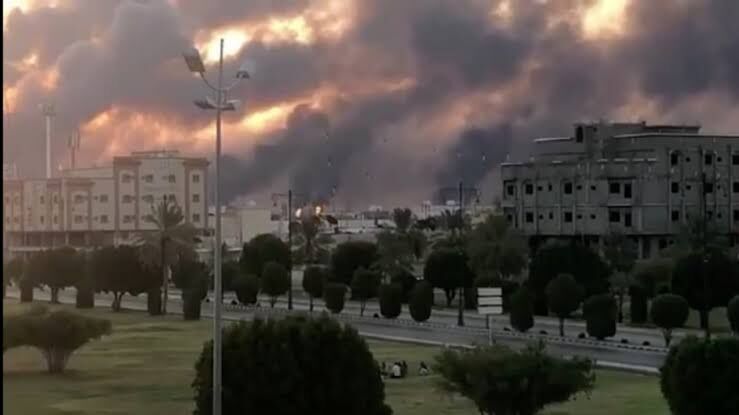Impact of Saudi oil attack on New Delhi
Houthis, a rebel group in Yemen bombed the Abqaiq plant as well as the Khurais oil field in Saudi Arabia using drones.
On 14 September 2019 Houthis, a rebel group in Yemen that is backed by Iran, bombed the Abqaiq plant as well as the Khurais oil field in Saudi Arabia using drones. This is the largest plant operated by ARAMCO, Saudi state owned oil company . This plant alone produces about 6 million barrels per day which is estimated to be 6% of the total global oil supply. It had to use 2 mbd of spare capacity to overcome the disruption in oil supply. This is considered to be the biggest oil supply disruptions since the 1991 Gulf War. The attack on the oil facility has been as a result of the ongoing civil war in Yemen in which a coalition of forces led by Saudi is fighting against the Houthi rebels allegedly supported by Iran. This attack raises the question on the security of Saudi's oil fields which are rich in oil wells and if a rebel group can target such an important infrastructure then in future a well planned attack could have disastrous consequences .
IMPACT ON INDIA
It's impact on India could be huge as Saudi Arabia accounts for 10% of global crude oil supply and India imports 80% of it's total oil consumption. Saudi Arabia is the second largest exporter of oil after Iraq to India. It comes just after a month when ARAMCO announced a deal with Reliance Industries in which it proposed to acquire a 20% stake in Reliance oil to chemicals which has a value of $75 million and supply the Jamnagar refinery with 5,00,000 barrels of crude oil per day.
Supply constraints and rising oil prices would mean weakening of the rupee against dollars thereby worsening import bills, hence increasing the fiscal deficit. Higher crude oil prices will further increase the domestic oil prices which in turn, will further depress the demand for other things, especially in the sectors which use oil as its primary input. This dip in oil supply, would likely mean lower economic activity and consequently lower revenues for the government. Although the oil reserves of Saudi helped in countering this disruption but this attack has lessons for the future as the same cannot happen every now and then.
FUTURE PROSPECTS
Attacks like these clearly indicates that the oil reserves are too vulnerable and anytime can disturb the entire scenario. Moreover we are largely dependent for our oil supplies, hence securing our way out is the need of the hour. India is moving ahead with its plan of Strategic Oil Reserve in Chandikhole (Orissa), Vishakhapatnam (Andhra Pradesh), Mangalore (Karnataka), Udupi-Padur (Karnataka) and Bikaner (Rajasthan) to ensure energy security which would serve as a cushion during any external disruptions.
However, we need to devise many more ways. First, India should diversify its supply base, like we have options available in the form of many African states like Nigeria, Libya etc. Second, India should spend more on R&D towards exploring new oilfields and hydrocarbon reserves in order to boost domestic production.
Thirdly, India needs to invest heavily in midstream and downstream sector to strengthen its fragile infrastructure in addition to improving the condition for investment in this sector. Fourthly, India should strongly pitch for entry into NSG club in order to have a continuous uranium supply to enhance its Nuclear energy and should remove bottlenecks in the renewable sector for a sustainable energy production to achieve its target 175GW of clean energy supply by 2022. Lastly India should invest in foreign oil and gas blocks with buy back agreements.
CONCLUSION
India along with the international community should raise these matters in UNSC in order to make our energy resources safer without disturbing the global economic scenario. The need of the hour is to ensure safety of these assets in addition to cutting down of the weapons and funding of the organisations targeting oil assets. In the end the attack will have implications which will test the already strained relations between Iran and Saudi Arabia and the race to become the super power of Middle east will further intensify and countries like India should have a cautious approach so as to not cause alienation with any of the two sides. For the time being, this seems the perfect option.
Written by: Kumar Gandharv and Saumy Deepak Tripathi




